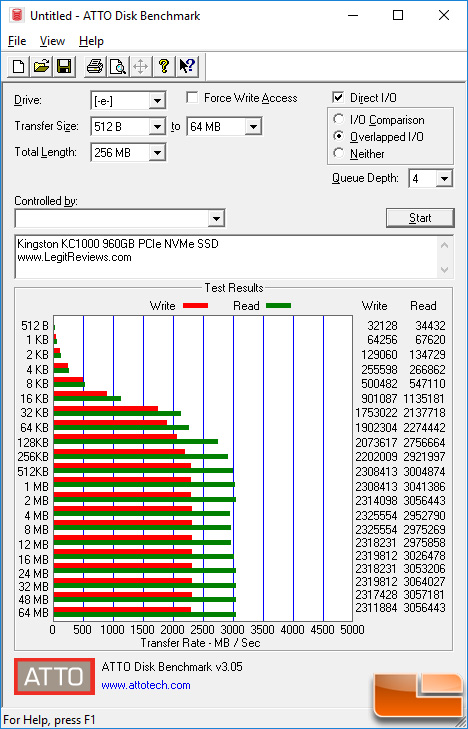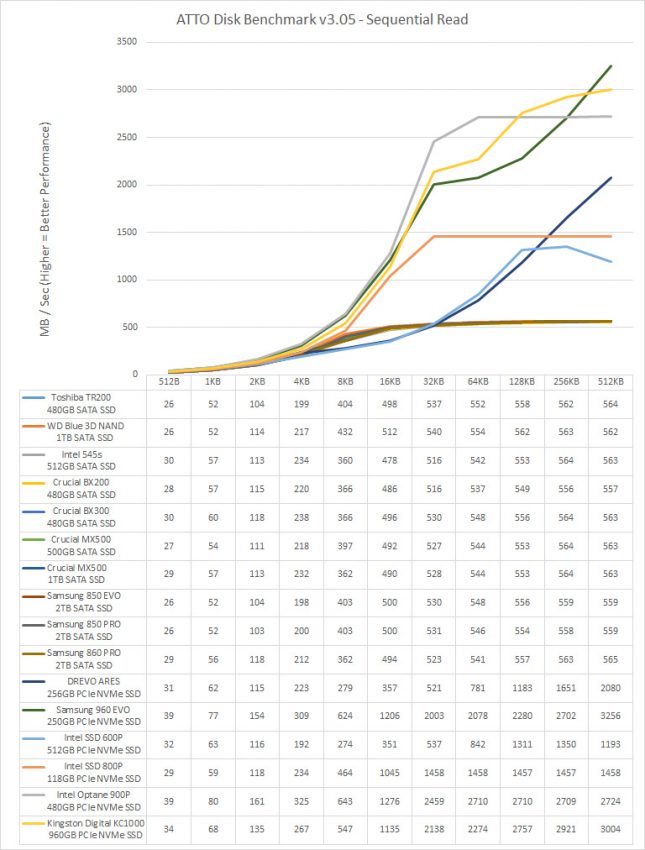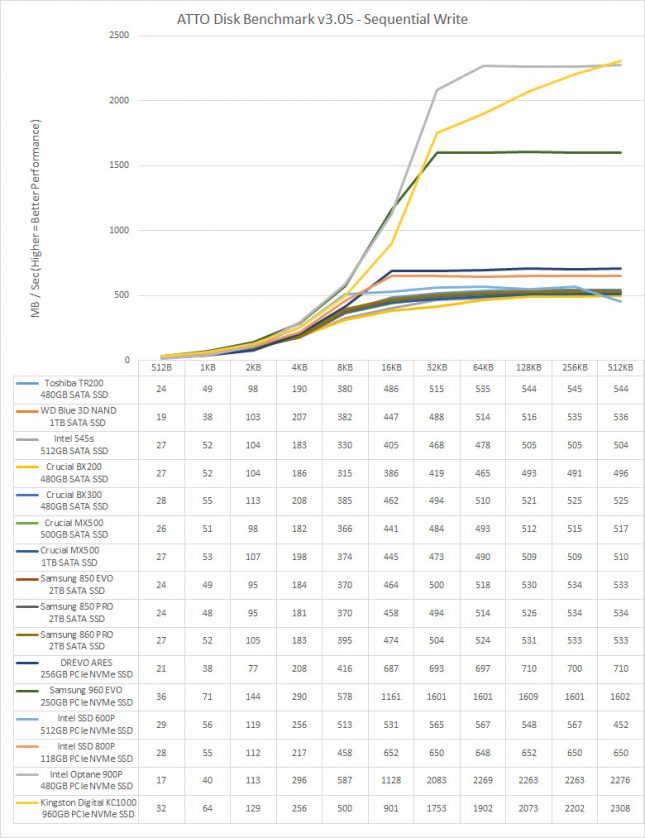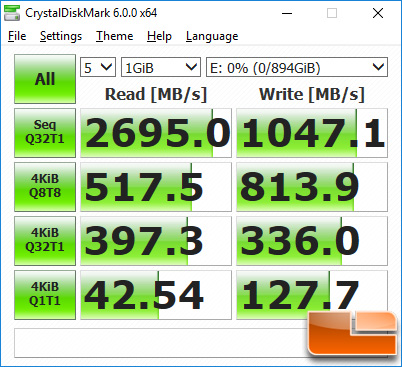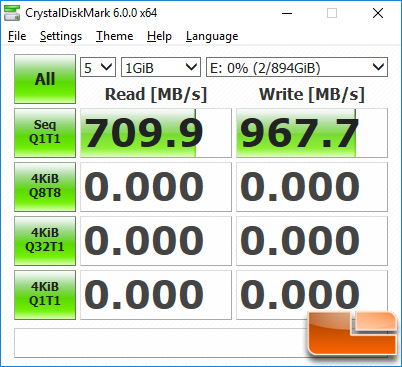Kingston Digital KC1000 960GB PCIe NVMe SSD Review
ATTO & CrystalDiskMark
ATTO v3.05
ATTO is one of the oldest drive benchmarks still being used today and is still very relevant in the SSD world. ATTO measures transfers across a specific volume length. It measures raw transfer rates for both reads and writes and places the data into graphs that can be very easily interpreted. The test was run with the default runs of 0.5KB through 64MB transfer sizes with the total length being 256MB.
ATTO – Kingston KC1000 960GB:
Benchmark Results: ATTO showed the Kingston KC1000 960GB PCIe NVMe drive reaching speeds of up to 3,064MB/s read and 2,325 MB/s write in the standard overlapped I/O benchmark. This drive is rated at up to 2700 MB/s max sequential read and 1600 MB/s max sequential write and we smashed those rated speeds on our Intel Z370 based test platform.
Benchmark Results: Compared to some other SATA III and PCIe NVMe SSDs, the Kingston KC1000 960GB does really well and performs better than most all drives at larger block sizes.
Benchmark Results: The Kingston KC1000 960GB drive topped out at over 2300 MB/s at a block size larger than we charted, so the performance was still headed up! Kingston has a powerful drive here when it comes to sequential read and write performance!
CrystalDiskMark 6.0.0 x64
CrystalDiskMark is a small benchmark utility for drives and enables rapid measurement of sequential and random read/write speeds. Note that CDM only supports Native Command Queuing (NCQ) with a queue depth of 32 (as noted) and shows the highest score of five runs.
CystalDiskmark – Kingston KC1000 960GB:
Benchmark Results: The Kingston KC1000 960GB topped out at 2695 MB/s read and 1047 MB/s write in the standard sequential write test that is done at QD32. Random 4K QD1 performance was 42.5 MB/s read and 127.7 MB/s write. Those 4K random performance numbers improved up to 397 MB/s read and 336 MB/s write at a queue depth of 32.
Manually running the sequential performance test at Q1T1 showed performance of 710 MB/s read and 968 MB/s write. The sequential QD1 performance on this model is off the charts, but the 4K Random QS1 performance numbers are nothing to brag about.
Let’s look at some other benchmarks!

